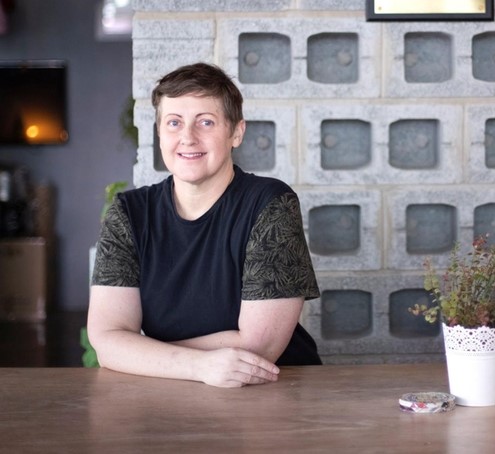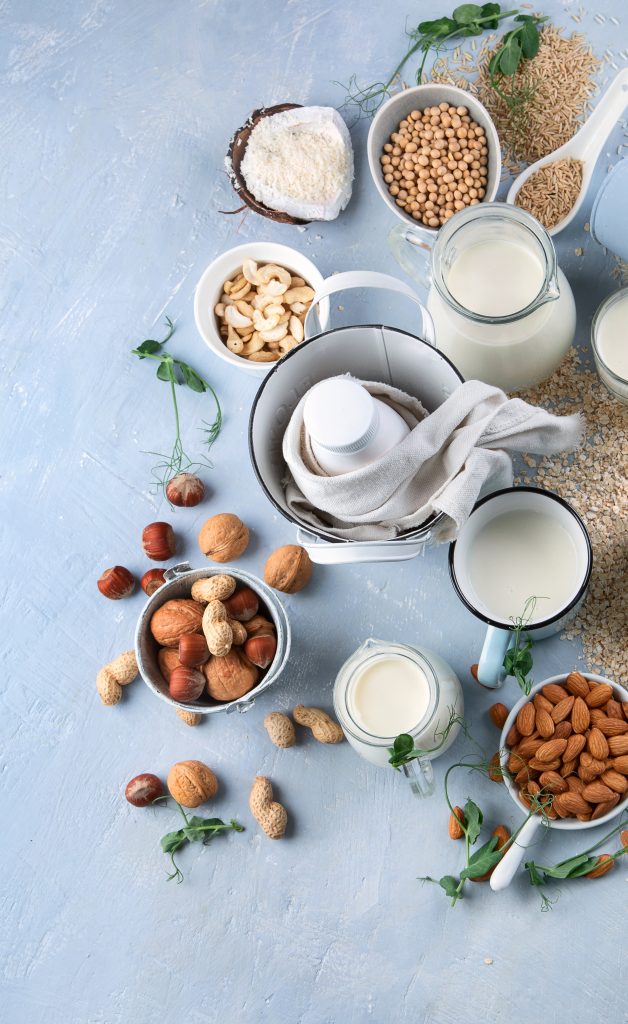Plant-based products have certainly caught wind, especially in the pandemic era. We asked industry leaders about their opinion and why the Middle East market is more lucrative for suppliers of vegan and plant-based F&B products than ever before.
There is a mid-size market for vegan, organic products (in the wider Middle East) currently, and it’s growing
“It’s a fast-moving growth sector that has government support due to its progressive food security program,” starts Lisa Knight, Co-owner of Cafe Isan, winner of the Time Out Magazine best Thai Restaurant award. Lisa has a passion for vegan food, and the restaurant has recently developed a fully vegan menu.
Regi Mathai, Category Head, (FMCG & FRESH Departments), at LuLu Group International, one of the top retailers in the Middle East and a major multinational conglomerate with a wide chain of hypermarkets, commented, “The market for plant-based and vegan products is on the rise for sure, specifically for vegetarians that avoid all animal and animal-derived products because of allergies and dietary requirements.”
Meanwhile, Arun Shroff, Director, Hygenix General Trading (L.L.C.) commented, “There is a mid-size market for vegan, organic products (in the wider Middle East) currently, and it’s growing. The UAE is a leader in adapting to new trends due to its diverse population base. We also have to include “free-from” products in this category as a growing number of adults are more aware of their intolerances.” Hygenic General Trading has been importing and distributing plant-based products for over a decade, recently venturing into private labelling with the brand Pikoo, with innovative snacks such as pea milk.
In the UAE alone, the plant milk category has seen a growth of up to 50% in FY 2020 alone.
On the topic of this category’s growth during the pandemic, Knight commented, “It’s growing rapidly, especially frozen plant-based food like snack and convenience foods, some of which may be meat substitutes (as the traditionally meat-eating Middle East adjusts to plant-based life).”
“With COVID-19 and its assumed origins, consumers are taking a hard look at what they eat. The pandemic has brought into focus factory farming and the conditions in which animals are kept before being slaughtered. There has been a surge in demand for plant-based milk and vegan alternatives during this time. In the UAE alone, the plant milk category has seen a growth of up to 50% in FY 2020 alone. Retailers are seeking out meat and dairy-free alternatives to meet the demand,” said Shroff.
Mathai said, “Even before COVID-19, there were a lot of inquiries and customers for vegan and plant-based products. We can see the demand even more now during the pandemic at Lulu.”
The pace of innovation in the sector is rapid, with products like plant-based eggs coming onto the market.
Talking about trends in sourcing plant-based products globally and locally, Shroff opined, “A lot of plant-based products in the Middle East are originating from Europe and some from the US. Plant milk, snacks, and free from products originate from the EU due to strict compliance measures on ingredients declared. Additionally, the EU has stricter guidelines on non-GMO products and ingredient declarations.”
Mathai noted certain specific products that are bringing in great outcomes for a major retailer such as Lulu, “We are getting a good response from manufactures and suppliers for plant-based cheese, chips, and other snacks.”
Knight thinks that innovation is rapid which is spurring the sourcing process, “The pace of innovation in the sector is rapid, with products like plant-based eggs coming on to the market.”
Create conversations around health, ethics, and sustainability
Offering advice for suppliers who wish to enter this market, Knight mentioned, “Create conversations around health, ethics, and sustainability – such as the benefits of healthy food choices in the context of a COVID-19 world. Such as: Is plant-based the new ‘clean’ way to eat/live?”
“The frozen food and ready-to-eat meals sections are growing rapidly. Customers are looking for healthy meals that can be cooked with ease and convenience. Additionally, you have customers on the opposite end of the spectrum who have started cooking a lot more at home. With the restrictions on movement still in place in several countries, people are opting to make food or bake desserts. Hence, international exporters who can offer high-quality cooking ingredients will certainly be welcomed,” suggested Shroff.
In the region, almost 10-15% of the customer base is preferring organic produce
Talking about the future of organic and natural products, Knight said, “I predict further rises in consumer demand, continued product innovation, more government support initiatives, and a healthy pool of plant-based investors”
Shroff said, “I personally think the demand for vegan, free from, organic products will continue to grow. Social media will continue to play an important role in driving food trends globally and veganism will be the broader trend at the forefront. Food is no longer about fulfilling dietary requirements only; it is also about social change and attitudes towards how that food is grown and sourced.”
Bringing the topic to a close, Mathai brought a positive statistic to light, “In the region, almost 10-15 % of customers prefer organic produce. It will continue to grow, and as per our experience at Lulu, the future is looking positive for international suppliers.”




